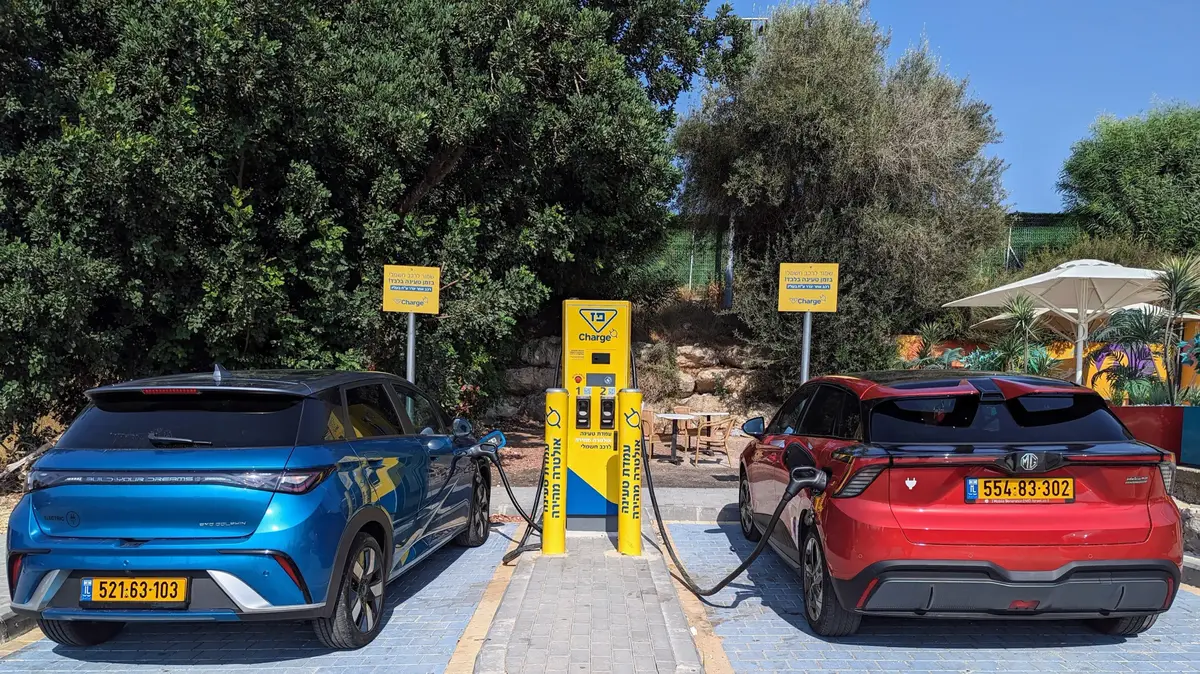Electric shock
: The expected increase in the price of electricity in January will not go down the throat of many sections of the public.
If it's not enough that the mortgage has become more expensive by hundreds of shekels, the price of fuel is expected to soar starting next month, and the shopping basket at the supermarket continues to become more expensive - the 8.1% increase in the electricity rate will take place at the height of winter when the air conditioners and radiators work overtime.
The main reason for the increase in the electricity tariff that has been observed since January is the increase in the price of coal and the increase in the consumer price index.
To all of these must be added the previous increase in the price of the electricity tariff for payments.
As you may remember, on August 1 the electricity tariff increased by 8.6% also following the jump in the price of coal.
The rate of price increase then was supposed to be higher and stand at about 20%, but in the shadow of public criticism it was decided to spread part of the price increase into payments.
It turns out that this time too the tariff was supposed to jump by more than 20%, and the Electricity Authority decided to spread the debt of the Electric Company and settle for a more moderate increase of 8.1%.
Electricity prices are expected to rise again.
The Electric Company, photo: Yehoshua Yosef
Will Netanyahu keep his promise?
Let's recall that Prime Minister-designate Binyamin Netanyahu pledged to "freeze the generators of inflation" - the electricity, water, property tax and fuel rates.
From the examination we conducted, the budgetary cost of freezing the electricity tariff will be approximately NIS 2.2 billion per year, and despite the budget surplus of more than NIS 30 billion since the beginning of the year, it is not certain that the move can be implemented, at least not in the usual easy way.
Will the new government be able to freeze the electricity tariff increase before the month of January?
Not at all safe.
According to the Electricity Authority Law, the electricity tariff can be lowered by a subsidy to be given to the electricity company from the state budget.
It is highly doubtful whether the government will succeed in approving the state budget before January 2023. However, there is another way: to date, electricity subsidies have been made through a waiver of excise tax - which the state budget did not require, but rather the signature of the Minister of Finance and the approval of the finance committee.
The problem is that the waiver of the excise tax will reduce the rate by only 1.5% while the rate is expected to increase by 8.1%.
will freeze the price increase?
Netanyahu, photo: Mark Israel Salem
There are, of course, other ways that can be thought of, such as lowering the VAT on the electricity tariff or amending the Electricity Authority Law. However, in these cases we are dealing with complex legislative procedures and it is not certain that the new government will want to enter into that. Bottom line, the high cost of the electricity tariff can be moderated, but This is a challenging move. When the government approves the state budget for 2023 - which will take a few months from the day the government is established - it will be possible to transfer a subsidy to the electric company and lower the rate.
In the event that the government nevertheless decides not to wait until the approval of the budget and decides to act in a way of forgoing income in the state coffers (reducing excise duty or lowering VAT), it will be necessary to present budgetary funding sources, which, as mentioned, are estimated at approximately NIS 2.2 billion. It is important to note that the electricity sector in Israel Runs as a closed economy, which, among other things, made important reforms such as the electricity reform possible.Government intervention in a closed economy is less recommended in the eyes of the experts.
"The proper policy to deal with the rise in electricity and fuel prices should be through an accelerated plan to reduce dependence on coal and imported fuels, and encourage local energy sources that are cheaper and cleaner," suggests Chen Herzog, the chief economist of the consulting firm BDO, in a conversation with Israel Hayom.
"Instead of subsidizing the import of polluting coal, it is better to invest the budget in accelerating the end of the use of coal and promoting renewable energies. Instead of subsidizing gasoline - promote public transportation, electric cars and buses and speed up the connection of factories to gas."
The war in Ukraine contributed to the energy crisis, photo: Reuters
When will the prices drop?
Israel produces most of its electricity using natural gas whose price is anchored by long-term contracts between the Electric Company and the Tamar and Levitan reservoirs.
However, about a fifth of the total electricity is produced by using the expensive and polluting coal.
Assuming that the price of coal will not change and remain at the high levels as it is today, the expectation is that the electricity rate will in any case begin to stabilize after the gas-fired power plants replace the coal-fired power plants - something that was supposed to happen as early as June but was postponed for a year.
As the use of coal decreases, Israel will be less dependent on its price and the rate is expected to decrease.
How do we compare internationally?
Israel got out of the global energy crisis cheaply thanks to its gas reserves.
Even after the expected increase, Israel's position is relatively good in an international comparison.
For example, in developed countries such as Denmark, Belgium, Germany and Italy, the electricity tariff is almost twice as high as Israel's.
This is, of course, due to the energy crisis that hit Europe due to its dependence on Russian gas and oil.
In relation to Eastern Europe such as Hungary, Bulgaria - Israel's situation is less good, and the electricity tariff in these countries is significantly cheaper than in Israel.
In many Eastern European countries, electricity is subsidized by the government.
were we wrong
We will fix it!
If you found an error in the article, we would appreciate it if you shared it with us












/cloudfront-eu-central-1.images.arcpublishing.com/prisa/KMEYMJKESBAZBE4MRBAM4TGHIQ.jpg)


